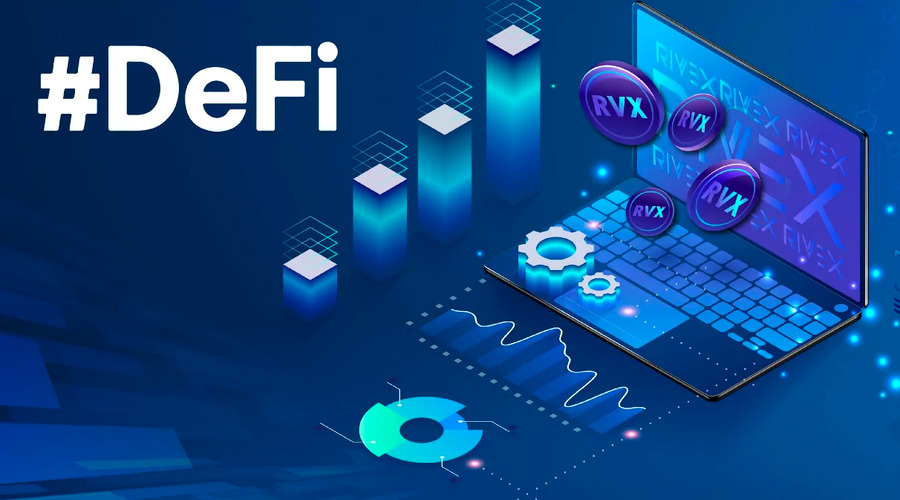
DeFi Security Partnerships: Strengthening Ecosystem Resilience
The world of decentralized finance (DeFi) has gained immense popularity in recent years, attracting billions of dollars in investments and transforming the financial landscape. However, with its rapid growth and increasing complexity, the security risks associated with DeFi platforms have become a major concern. To address these challenges, industry players are joining forces through strategic partnerships to enhance the resilience of the DeFi ecosystem. In this article, we will explore the significance of DeFi security partnerships, the key players involved, the benefits of collaboration, successful examples, challenges faced, best practices, and future trends.
Introduction to DeFi
DeFi refers to a decentralized financial system built on blockchain technology that aims to provide open, transparent, and permissionless financial services to individuals worldwide. By eliminating intermediaries, decentralized finance enables users to participate in various financial activities, including lending, borrowing, trading, and yield farming, without relying on traditional banks or financial institutions. However, the decentralized nature of DeFi platforms also introduces unique security risks that require constant vigilance and innovative solutions.
Understanding DeFi Security
DeFi security encompasses a range of measures and protocols designed to protect user funds, data, and smart contracts from malicious actors and vulnerabilities. As DeFi platforms operate in a trustless environment, where transactions are executed through code rather than traditional legal frameworks, the potential for hacks, exploits, and fraudulent activities increases significantly. To mitigate these risks, developers and security experts continuously work on improving the security of decentralized finance protocols.
The Importance of DeFi Security Partnerships
DeFi platforms operate on the principle of decentralization, which means that trust is placed on smart contracts and protocols rather than traditional intermediaries. While this opens up new opportunities for financial inclusion and innovation, it also introduces vulnerabilities and risks. Decentralized finance security partnerships are crucial for several reasons:
- Pooling Resources: By collaborating, different stakeholders can pool their resources, expertise, and knowledge. This enables a more comprehensive approach to security, as multiple perspectives and skill sets can be brought together to identify and mitigate risks.
- Holistic Security Audits: Partnerships allow for more thorough security audits of DeFi protocols. Security audit firms specialize in evaluating smart contracts and identifying vulnerabilities. Through partnerships, these firms can conduct extensive audits that cover a broader range of protocols, improving the overall security of the ecosystem.
- Sharing Best Practices: Collaboration encourages the sharing of best practices and lessons learned. This knowledge exchange helps all participants stay informed about the latest security trends and strategies. It also enables the adoption of standardized security measures, making it easier for new projects to implement robust security practices.
- Mitigating Systemic Risks: DeFi security partnerships help address systemic risks that can impact the entire ecosystem. By working together, stakeholders can identify and address vulnerabilities that have the potential to affect multiple protocols or impact user funds on a larger scale.
Key Players in DeFi Security Partnerships

Several key players contribute to DeFi security partnerships, each with a unique role to play:
- Security Audit Firms: Security audit firms specialize in conducting comprehensive security assessments of DeFi protocols. These firms analyze the code, identify vulnerabilities, and provide recommendations to improve the security posture of the platform. By partnering with security audit firms, DeFi projects can ensure their protocols are thoroughly reviewed and audited.
- Insurance Providers: Insurance providers have emerged to address the need for asset protection in the decentralized finance space. These companies offer smart contract insurance and coverage against hacks, exploits, and other security breaches. Partnering with insurance providers allows DeFi platforms to provide an added layer of protection and instill confidence in users.
- Bug Bounty Platforms: Bug bounty platforms incentivize ethical hackers to discover and report vulnerabilities in decentralized finance protocols. By offering rewards for identifying bugs, these platforms attract a global community of security researchers who actively contribute to the identification and resolution of potential security issues.
- Decentralized Oracles: Decentralized oracles act as trusted sources of off-chain data for DeFi applications. These oracles provide critical information, such as price feeds and market data, which are essential for the proper functioning of DeFi protocols. Collaborating with decentralized oracles enhances the reliability and accuracy of data used within decentralized finance platforms.
- Regulatory Bodies and Compliance Experts: Regulatory bodies and compliance experts contribute to DeFi security by promoting best practices and ensuring platforms adhere to legal and regulatory frameworks. Collaboration with these entities helps decentralized finance projects navigate the evolving regulatory landscape and implement measures to mitigate legal risks.
Benefits of Collaborative Efforts in Enhancing Ecosystem Resilience
Collaboration among different stakeholders in the DeFi space offers numerous benefits, including:
- Enhanced Security: By combining expertise and resources, decentralized finance security partnerships can effectively identify and address vulnerabilities, reducing the likelihood of security breaches.
- Shared Knowledge: Collaboration facilitates the exchange of knowledge and best practices, enabling stakeholders to learn from each other’s experiences and stay updated on the latest security trends.
- Rapid Response: In the event of a security incident, partnerships allow for quicker response times, enabling stakeholders to coordinate efforts and mitigate the impact on the wider ecosystem.
- Increased User Trust: Robust security measures resulting from collaborative efforts build trust among users, attracting more participants and further fueling the growth of DeFi.
- Economies of Scale: Partnerships enable the pooling of resources, making it more cost-effective to conduct security audits, provide insurance coverage, and invest in research and development.
Examples of Successful DeFi Security Partnerships
Several successful DeFi security partnerships have emerged in recent years, demonstrating the effectiveness of collaboration in enhancing ecosystem resilience. Some notable examples include:
Example 1: The partnership between Yearn.finance and Cover Protocol
Yearn.finance, a leading DeFi protocol, partnered with Cover Protocol, an insurance coverage provider. This collaboration aimed to offer users insurance coverage against potential vulnerabilities in Yearn.finance’s smart contracts. The partnership provided users with an added layer of protection and contributed to the overall security of the decentralized finance ecosystem.
Example 2: Compound Finance and OpenZeppelin collaboration
Compound Finance, a prominent lending platform, collaborated with OpenZeppelin, a renowned security audit firm. OpenZeppelin conducted a thorough audit of Compound Finance’s smart contracts, identifying and resolving potential vulnerabilities. This partnership showcased the commitment of Compound Finance to maintaining a secure lending environment for its users.
Challenges in DeFi Security Partnerships
While DeFi security partnerships offer significant benefits, they also come with challenges that need to be addressed:
- Competing Interests: Stakeholders may have different priorities and objectives, which can lead to conflicts and hinder effective collaboration.
- Resource Allocation: Determining the allocation of resources, such as funding and personnel, can be challenging, especially when multiple partners are involved.
- Legal and Regulatory Compliance: Collaborative efforts must navigate legal and regulatory frameworks, ensuring compliance with applicable laws without stifling innovation.
- Trust and Reputation: Building trust among partners is crucial for effective collaboration. Establishing credibility and ensuring data privacy are essential considerations.
Best Practices for Effective Collaboration
To ensure successful DeFi security partnerships, it is important to follow best practices:
- Clear Objectives: Define clear goals and objectives for the partnership, ensuring alignment among stakeholders.
- Mutual Benefit: Identify mutual benefits for all parties involved, establishing a win-win scenario.
- Effective Communication: Maintain open and transparent communication channels, fostering trust and collaboration.
- Shared Resources: Determine the allocation of resources fairly, ensuring a balanced contribution from all partners.
- Continuous Evaluation: Regularly evaluate the partnership’s progress, making adjustments as needed to maximize effectiveness.
Future Trends in DeFi Security Partnerships
The field of DeFi security is constantly evolving, and several trends are shaping the future of collaborative efforts:
- Interoperability: Partnerships will focus on creating interoperable solutions that allow seamless integration between different DeFi platforms, improving overall security.
- Privacy Solutions: Collaboration will play a crucial role in developing privacy-enhancing technologies, addressing concerns surrounding user data and transactional privacy.
- Cross-Chain Security: As DeFi expands beyond a single blockchain, partnerships will emerge to address security challenges associated with cross-chain transactions and interoperability.
- Decentralized Governance: Collaborative efforts will extend to decentralized governance models, allowing stakeholders to make security-related decisions collectively.
Conclusion
DeFi security partnerships are essential for enhancing the resilience of the decentralized finance ecosystem. By joining forces, stakeholders can effectively address security risks, share knowledge, and develop innovative solutions. The benefits of collaboration include enhanced security, shared knowledge, rapid response, increased user trust, and economies of scale. However, challenges such as competing interests and legal compliance must be overcome to ensure successful partnerships. By following best practices and embracing future trends, DeFi security partnerships will continue to play a vital role in shaping a secure and robust decentralized finance landscape.
FAQs
1. Are DeFi security partnerships necessary?
Yes, DeFi security partnerships are crucial to address the security risks associated with decentralized finance platforms. Collaborative efforts enhance resilience and protect user funds.
2. What are bug bounty platforms?
Bug bounty platforms incentivize ethical hackers to find and report vulnerabilities in DeFi protocols. These platforms contribute to identifying and resolving security issues.
3. How do DeFi security partnerships benefit users?
DeFi security partnerships enhance user trust by implementing robust security measures, providing insurance coverage, and fostering a more secure DeFi ecosystem.
4. What are some challenges in DeFi security partnerships?
Challenges in DeFi security partnerships include competing interests, resource allocation, legal and regulatory compliance, and building trust and reputation among partners.
5. What are future trends in DeFi security partnerships?
Future trends include interoperability, privacy solutions, cross-chain security, and decentralized governance as collaborative efforts continue to evolve in the decentralized finance space.
I’m a professional writer. I have been writing about Cryptocurrencies for more than 2 years now and I consider myself one of the best authors in this field. I am very passionate about this technology and I believe that it will change the world as we know it. If you want to learn more about cryptocurrencies, you should definitely check out my work!


